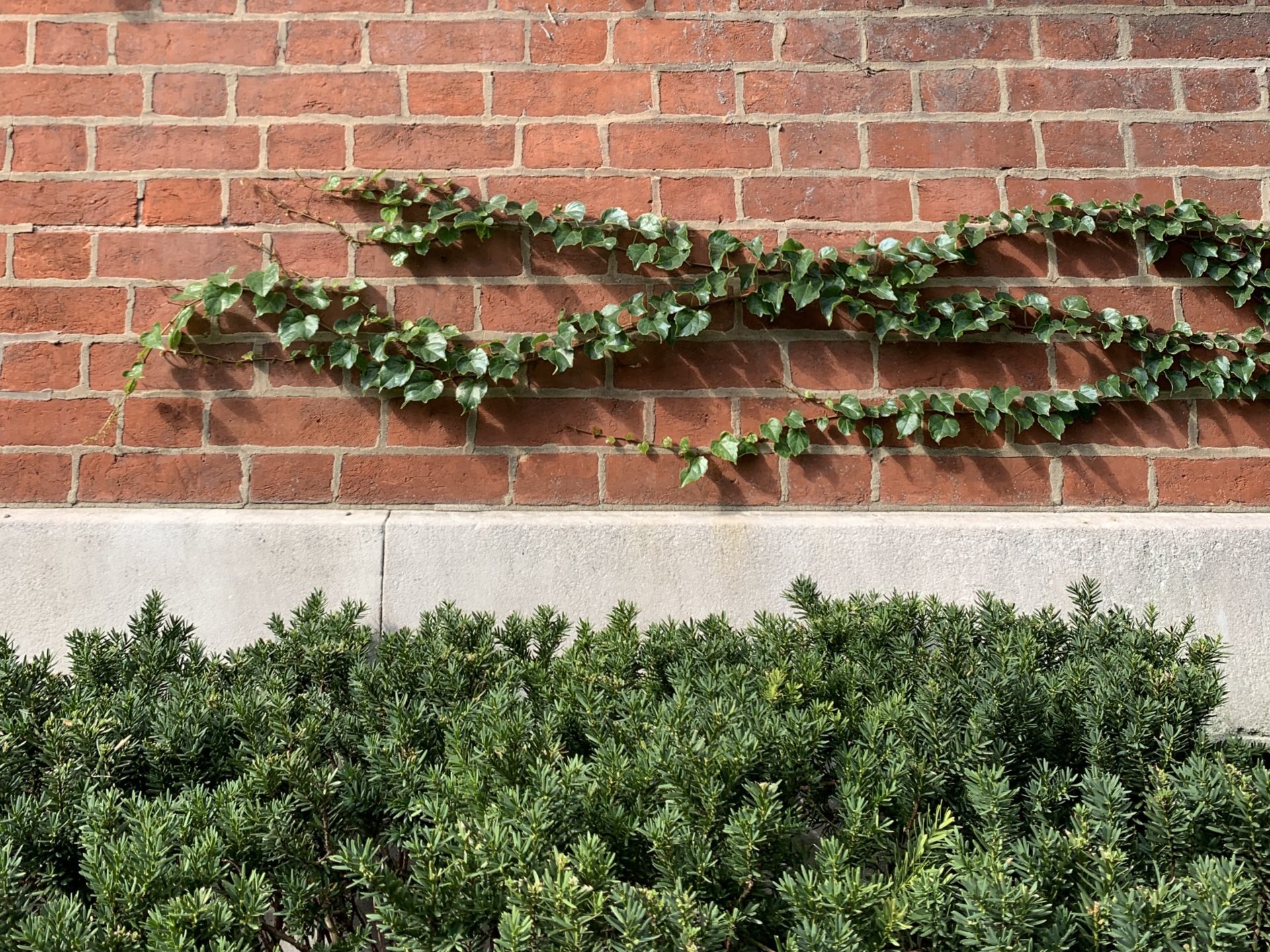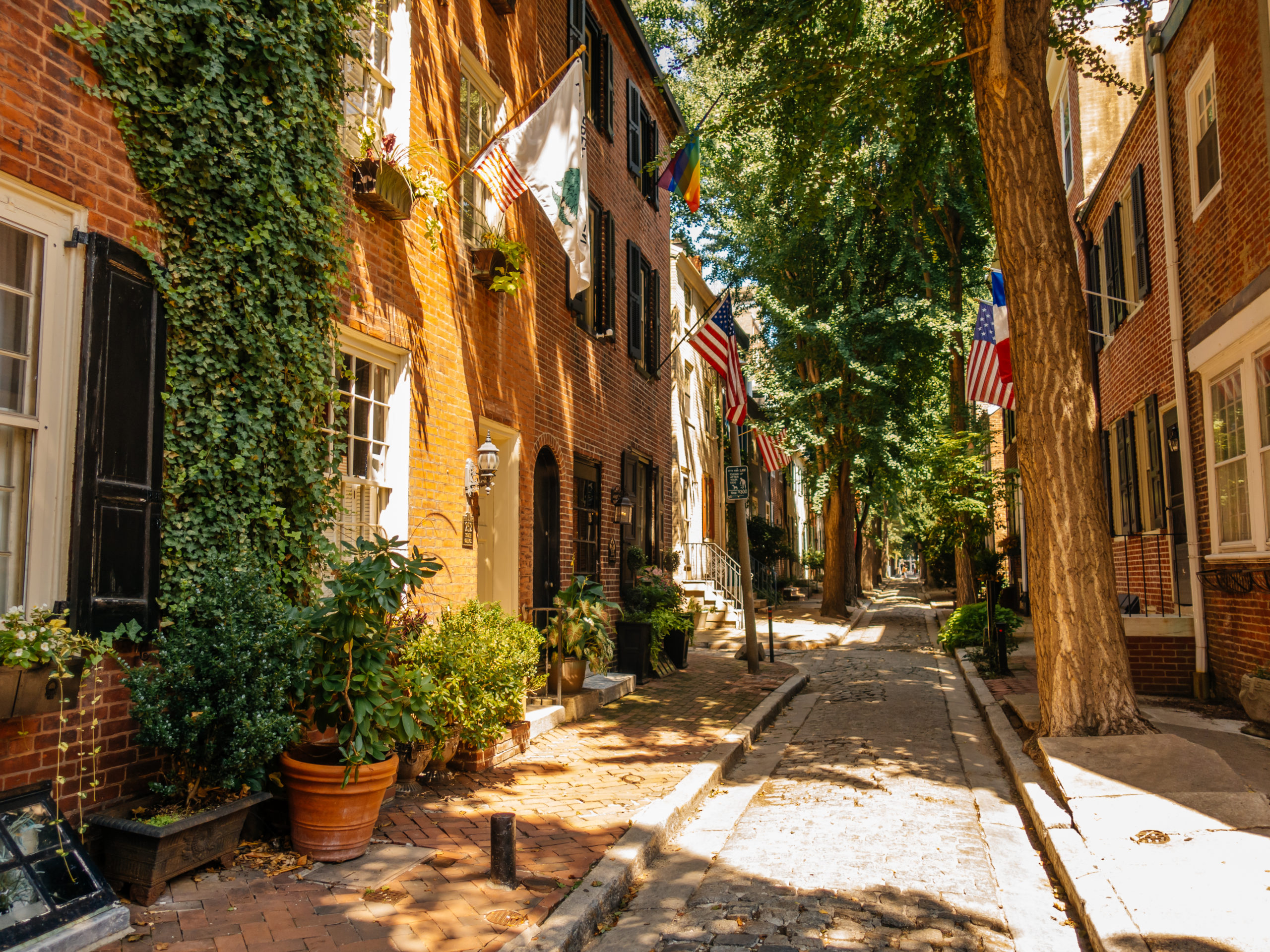General
Caring For Houseplants In The Winter
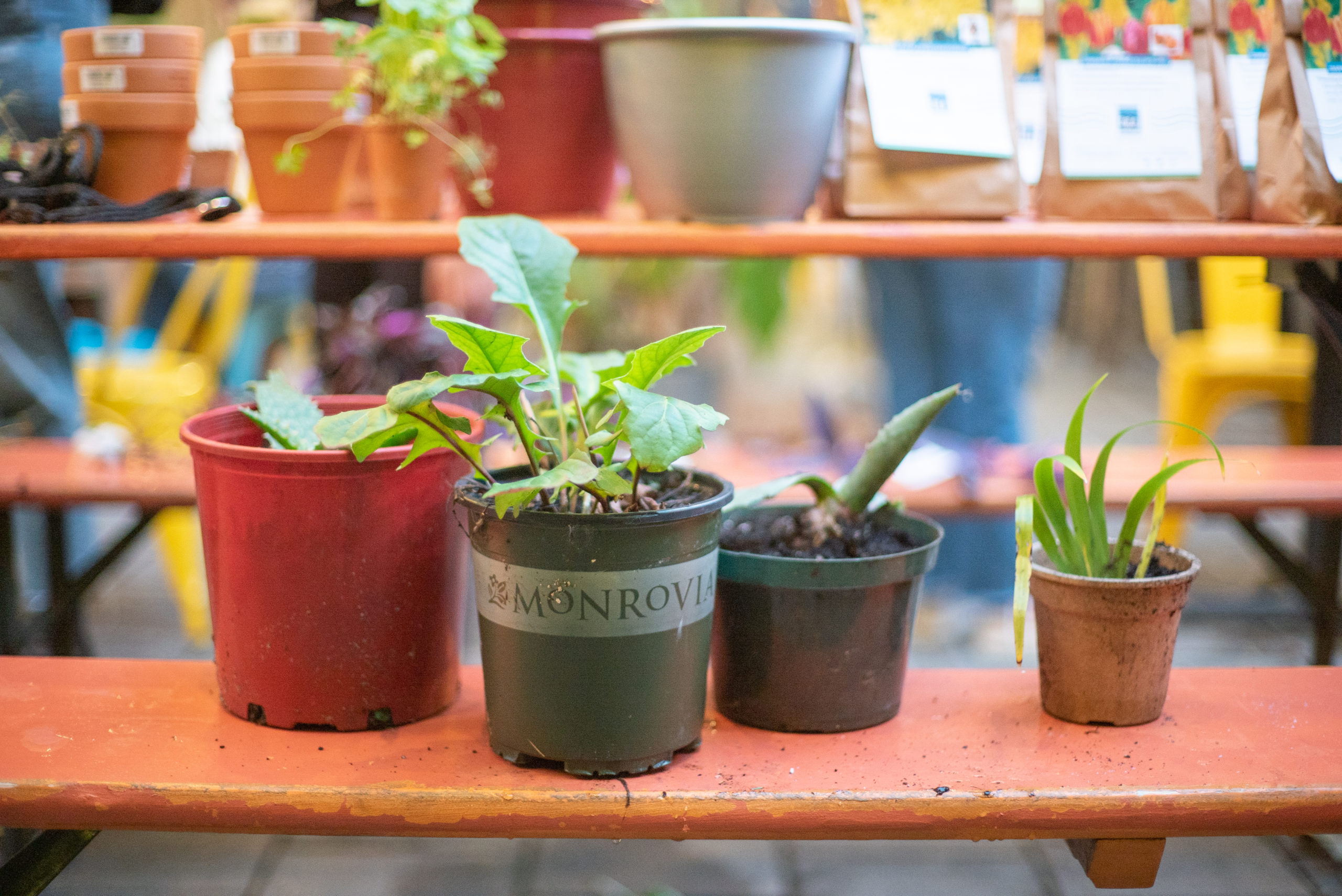
As sunlight dwindles, temperatures drop and your indoor heating system zaps humidity out of the air, your plants need extra care. We spoke with experts at Philly garden centers and The Pennsylvania Horticultural Society (PHS) for tips to help maintain your houseplants through the winter months.
To Dos
“Less light, less water,” said Dana Kalins, owner of Plants, Etc. in Fairmount. “Check the soil moisture is to poke your finger two inches below the surface, as the top of the soil dries out first.” If you continue the same watering schedule that you followed in the summer, you might over-water your plants.
Remove all plants that are near radiators or heat vents and move them to a side table. Plants love humidity. Kalins suggests filling a bowl with water and rocks and placing it near your plans. Another alternative to buying a humidifier is to use a mister bottle and spritz your plants if they start to look dry or the leaves turn brown.
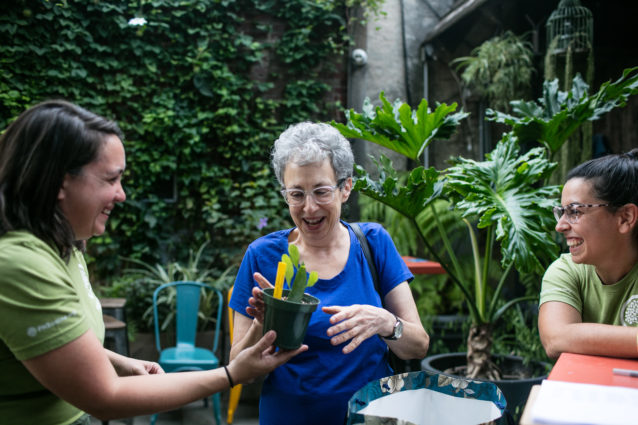
Plants like a steady temperature and don’t mind a dip at night. But if you take a vacation and turn the thermostat down to 60, don’t be surprised if some of your more plants suffer. The exception is ZZ, Jade, Snake, and Dracaena plants.
With fewer hours of sun per day, give your plants a quarter turn every time you water them to ensure all sides catch some rays. If leaves look dusty, wipe them clean with a damp sponge or cloth. Support the back of the leaf with your hand so you don’t accidentally rip it.
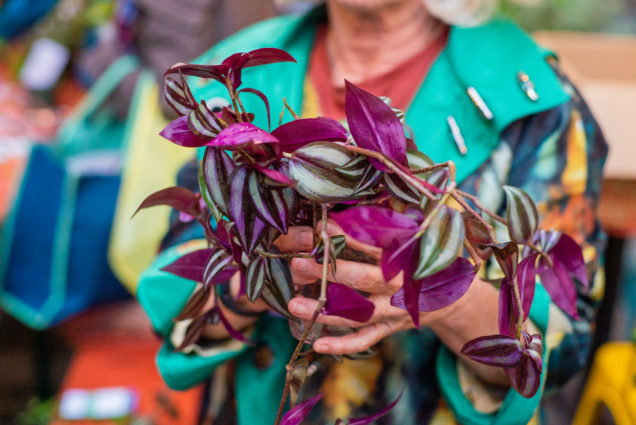
“Stop fertilizing in winter because it’s a slower growing season and start again in March,” she said.
Bringing Your Plants Inside
When bringing your plants inside, keep an eye out for pests. Spider mites, one of the most common pests, are particularly dangerous in winter when dry and dusty conditions drive them to seek moisture in the leaves of houseplants.
Sally McCabe, Associate Director: Community Education at the Pennsylvania Horticultural Society (PHS) recommends inspecting the soil and the bottom of pots before bringing plants inside to catch stowaways.
“Watch closely for mealybugs and spider mites, and dust them with diatomaceous earth and a big fluffy makeup brush. Leave on for a week, then wash off. Reapply if necessary,” she said.
Plants That Match Your Lifestyle
Before you visit one of Philly’s garden centers, be prepared to discuss whether you have northern, southern, eastern, or western exposure. Besides regular windows, let a staff member know if you have a terrace or patio with floor-to-ceiling glass doors that offer direct light.
Many houseplants are toxic to pets. If you have a furry friend, before purchasing any plant, check the ASPCA’s Toxic and Non-Toxic Plant List.
Low-Maintenance Plants
Tara and Curt Alexander, owners of Urban Jungle in East Passyunk, offer a range of plants that will thrive in winter, even if you ignore them. “Spider plants are almost impossible to kill,” said Tara. They do best in hanging baskets in low-light environments and like to dry out thoroughly between being watered every two weeks.
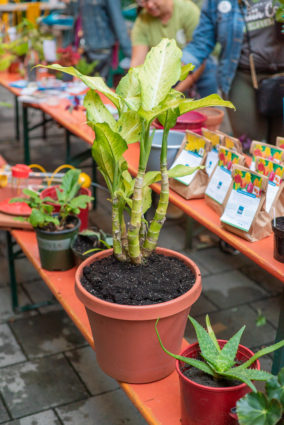
“We have a lot of cacti and succulents the easiest are any type of hardy euphorbia,” said Urban Jungle staffer Cecilia. “They tend to be larger and thicker so they hold up to sunlight and temperature better than the thinner ones. Jades are typically pretty easy going and can handle the change of seasons.”
Dracaenas come in all shapes, sizes, and colors. “They are super tolerant of a lot of light conditions,” said Cecilia. The soil needs to be kept damp, but too much water will kill it.
Areca Palms or Majestic Palms are happy with indirect light and they are not finicky,” she said. They do well in bright, filtered light and need less water in the winter. These palms can be expensive if purchased at their full height, so look for a tabletop size. Bonus: they are non-toxic to pets.
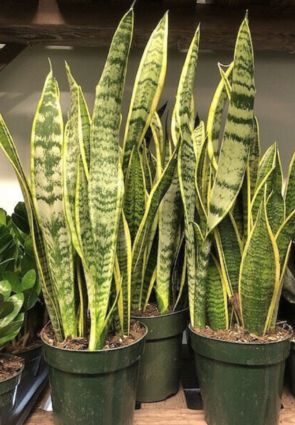
Snake Plant is an excellent choice for dark spaces and requires watering just every two weeks. The tall, vertical leaves make it adaptable to a tabletop or floor, depending on its size.
Higher Maintenance Plants
Boston Ferns thrive in humid environments like bathrooms and kitchens. They do well with moderate to low light conditions. “If your windows have strong light, put Boston Ferns in the middle of the room on a coffee table or use Venetian blinds to filter the light if you prefer keeping them on a windowsill,” said Cecilia.
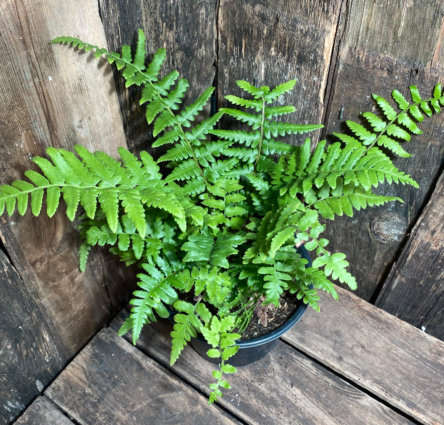
Consider Adding Some Holiday Color
Sally McCabe suggests bringing in some holiday brightness as the winter months approach — blooming cactus, poinsettias, and amaryllis come in a multitude of colors, and are tolerant of cooler temps. “Put new arrivals in quarantine for at least a week before introducing them to the rest of the family,” she said.
If you’re looking to add some winter plants to your other area gardening centers to consider include City Planter, Northern Liberties; Laurel Hill Gardens, Chestnut Hill; Secret Garden Center, Roxborough; Stump Garden Center, Northern Liberties.
As we noted in our Renter’s Guide to Houseplants, the plants you bring into your apartment or home are a reflection of your personality and style. As the seasons change, you’ll need to take extra care to ensure your plants remain in the best of health through the winter allowing them to continue to grow with you and reciprocate your care.





